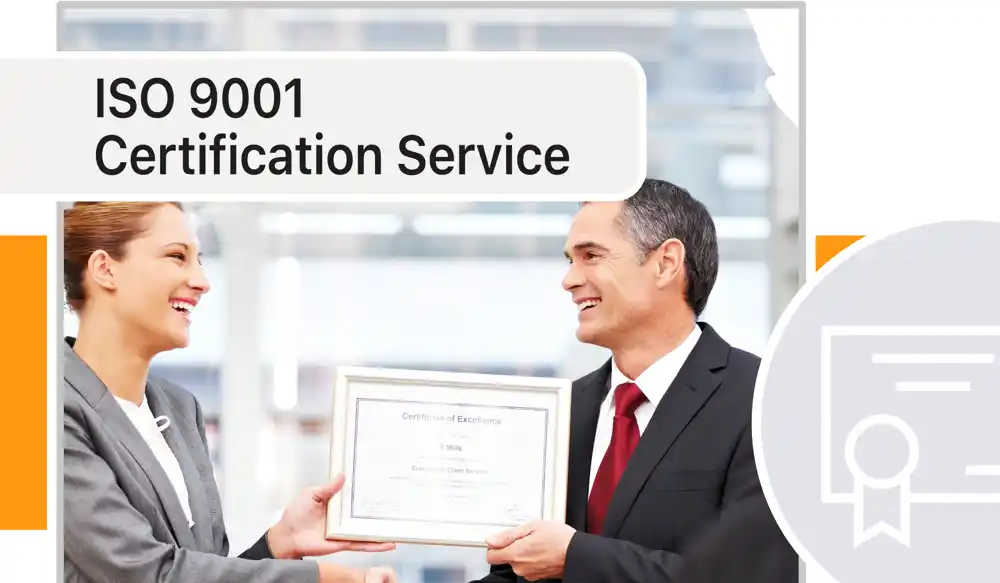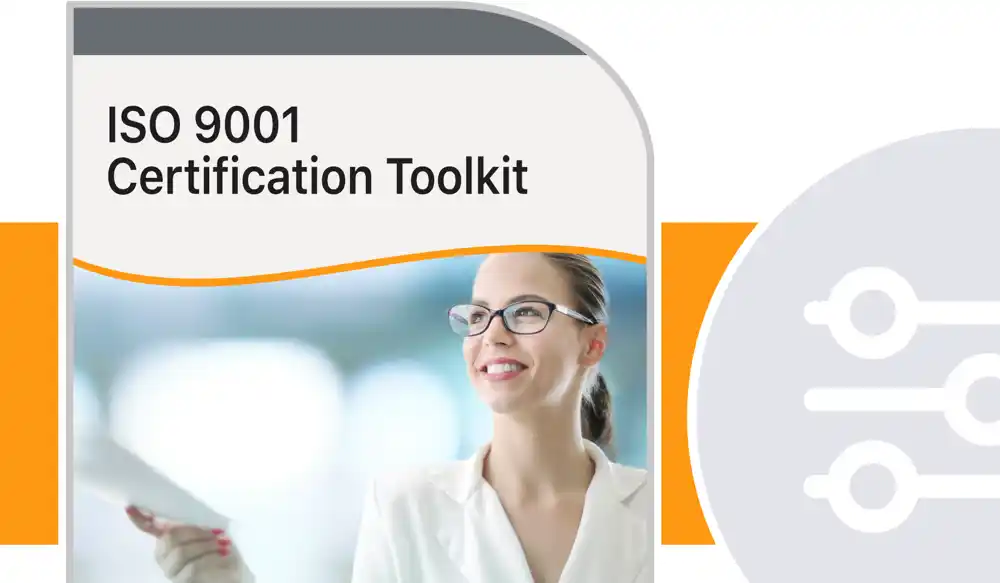AS9100 vs ISO 9001: Key Differences, Comparison Matrix, and Certification Guide
24 September 2023
AS9100 vs ISO 9001 is one of the most common questions in aerospace and manufacturing industries. Both standards are part of the ISO quality family, but they serve different needs. ISO 9001 sets the foundation for quality management systems (QMS). AS9100 builds on ISO 9001 and adds aerospace-specific requirements.
If your company plans to get certified, choosing the right standard is critical. At 9001Simplified, we provide ISO 9001 certification services, toolkits, and training. We also support AS9100 consulting and audits. Contact us today to simplify your certification journey.
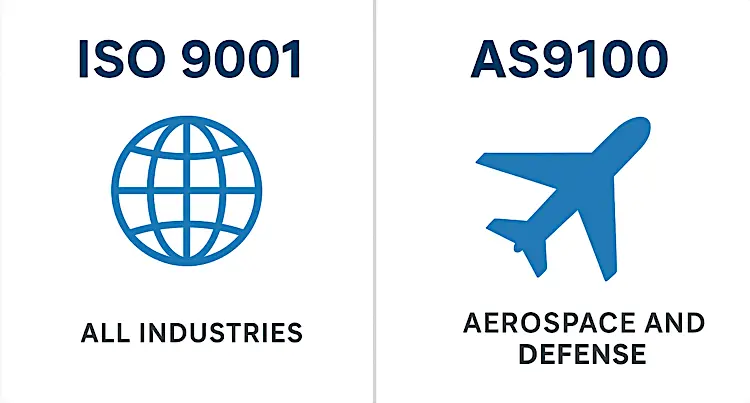
What is ISO 9001?
ISO 9001 is the world’s most used quality management standard. Over one million organizations across 170+ countries are certified. It provides a framework to improve product quality, customer satisfaction, and operational efficiency.
ISO 9001:2015 is the latest version. It introduces a risk-based approach, leadership involvement, and continuous improvement. The standard applies to all industries, manufacturing, services, healthcare, IT, and more.
Organizations often use our ISO 9001 Certification Toolkit to implement the requirements step by step. It reduces costs and speeds up the certification process.
What is AS9100?
AS9100 is a QMS standard specifically designed for the aerospace industry. It is managed by the International Aerospace Quality Group (IAQG).
AS9100 includes all ISO 9001:2015 requirements plus additional clauses for aviation, space, and defense. It covers areas like:
Risk management for flight safety
Configuration management
Product traceability
Supplier performance monitoring
Counterfeit part prevention
AS9100 is mandatory for most aerospace suppliers. Without it, businesses cannot qualify for contracts with major manufacturers.
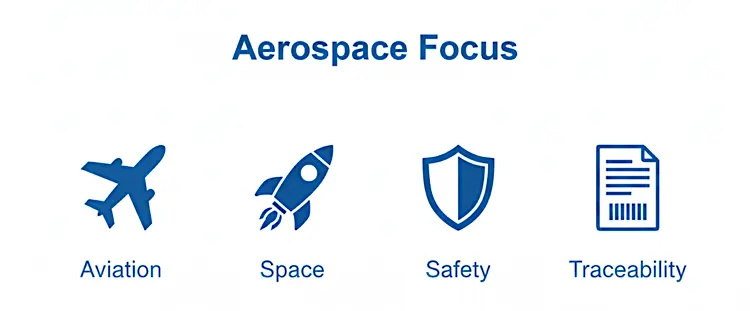
AS9100 vs ISO 9001: Core Differences
The main difference between AS9100 and ISO 9001 lies in their scope and level of requirements. ISO 9001 applies to all industries, while AS9100 is specific to aerospace and defense, with stricter rules.
Industry scope:
ISO 9001:2015 applies to all industries, while AS9100:2016 is focused on aerospace, aviation, and defense.
Risk management:
ISO 9001:2015 includes general risk-based thinking, while AS9100:2016 emphasizes on flight safety and operational risk
Product traceability:
ISO 9001:2015 doesn't require traceability, while it's mandatory in AS9100:2016
Supplier management:
ISO 9001:2015 requires a basic supplier evaluation, while AS9100:2016 includes strict monitoring and flow-down requirements
Documentation:
ISO 9001:2015's documentation requirements are flexible, while AS9100:2016 calls for detailed, aerospace-specific documentation
Certification demand:
ISO 9001:2015 is often voluntary in many sectors, while AS9100:2016 tends to be mandatory for aerospace contracts
Why Choose ISO 9001 Certification?
ISO 9001 certification is ideal if your business:
Operates outside aerospace or defense
Wants to improve customer trust and quality consistency
Seeks global recognition with lower costs than AS9100
Needs a flexible QMS framework
We help organizations through our fast and hands-off ISO 9001 Certification Service. Our expert team does all the work and sets up an effective system that simplifies compliance.
Why Choose AS9100 Certification?
AS9100 certification is required if your company:
Supplies products or services to aerospace or defense
Needs approval from major manufacturers like Boeing, Airbus, or Lockheed Martin
Must show compliance with regulatory bodies like the FAA or EASA
AS9100 improves reliability and reduces risk in high-safety industries. It also helps secure long-term contracts in the aerospace supply chain.
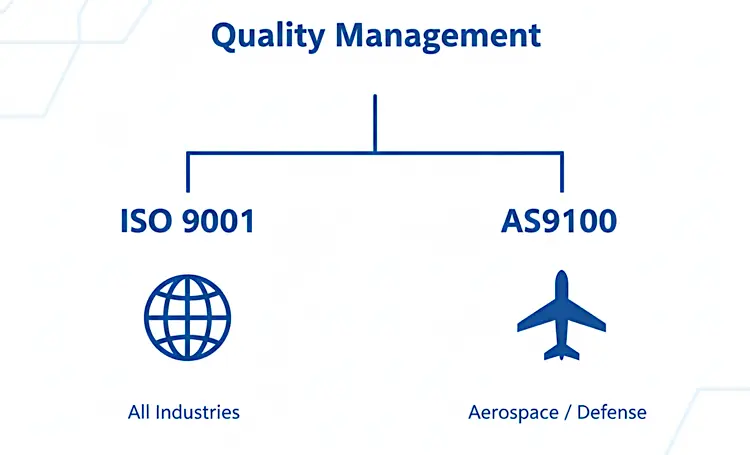
AS9100 vs ISO 9001:2015 Comparison Matrix
When comparing AS9100 vs ISO 9001:2015, the main difference is the additional aerospace clauses in AS9100.
Key additions in AS9100 include:
Clause 8.1.4: Prevention of counterfeit parts
Clause 8.1.5: Risk management specific to aerospace safety
Clause 8.1.6: Product safety during manufacturing and delivery
Clause 8.5.2: Product traceability with detailed records
This comparison matrix helps businesses decide which certification fits their industry.
For a detailed resource, the IAQG provides official AS9100 documents.
Certification Process: AS9100 vs ISO 9001
Both standards follow a similar certification process:
1. Gap Analysis – Identify current compliance level
2. Documentation – Develop policies, procedures, and records
3. Implementation – Train employees and apply processes
4. Internal Audit – Verify compliance before certification
5. Certification Audit – Conducted by an accredited registrar
ISO 9001 certification usually takes 2–6 months. AS9100 certification may take longer due to stricter audits.
We offer complete support, from full-service and hands-off consultancy to outsourced internal audit services.

Cost of Certification
ISO 9001 certification: Typically ranges from $5,000 to $15,000, depending on company size and scope.
AS9100 certification: Often costs $15,000 to $40,000 due to additional requirements and audits.
Costs include registrar fees, training, documentation, and consulting. Using self-service ISO 9001 toolkits can lower expenses significantly.
Training for ISO 9001 and AS9100
Employee training is crucial for both standards. ISO 9001 requires awareness and role-specific training. AS9100 requires deeper knowledge of aerospace compliance.
At 9001Simplified, we provide online courses including:
ISO 9001:2015 Foundation Training
Manager and Executive Training
Internal Auditor Training
Lead Auditor Certification
These courses help employees build competence and prepare for certification audits.
AS9100 vs ISO 9001 PDF and Comparison Tools
Many businesses request a AS9100 vs ISO 9001:2015 comparison matrix PDF. These documents outline clause-by-clause differences.
For ISO 9001 users, our free downloads include lists of required documents and audit tools. These resources simplify compliance without unnecessary complexity.
For AS9100, comparison matrices are often published by registrars and industry associations. Always ensure you use the latest AS9100:2016 vs ISO 9001:2015 comparison matrix.
Commercial Benefits of Certification
ISO 9001 improves efficiency, reduces waste, and increases customer confidence.
AS9100 enables entry into aerospace supply chains, improves reliability, and secures high-value contracts.
Both certifications build trust and open new markets. According to ISO.org, ISO 9001 is the most widely adopted QMS standard globally.
AS9100 vs ISO 9001: Which One is Right for You?
Choose ISO 9001 if you operate in general industries and need a recognized QMS framework.
Choose AS9100 if you serve aerospace or defense and want to meet mandatory requirements.
If you are unsure, start with ISO 9001. You can later upgrade to AS9100 by adding the aerospace clauses.
Get Expert Help Today
Deciding between AS9100 vs ISO 9001 is critical for long-term success. Both standards provide structured quality management, but AS9100 is essential for aerospace.
At 9001Simplified, we offer:
ISO 9001 Certification Toolkits
Online Training Courses
Consulting and Gap Analysis
Internal Audits and Document Review
Integrated services for AS9100
Contact us today to simplify certification and quickly achieve compliance.
Conclusion
AS9100 vs ISO 9001 comes down to industry needs. ISO 9001 applies broadly across sectors, while AS9100 adds aerospace-specific requirements. Both drive quality, efficiency, and customer trust.
Whether you choose ISO 9001 or AS9100, certification is a smart investment. With expert support from 9001Simplified, you can achieve compliance faster and more cost-effectively.

